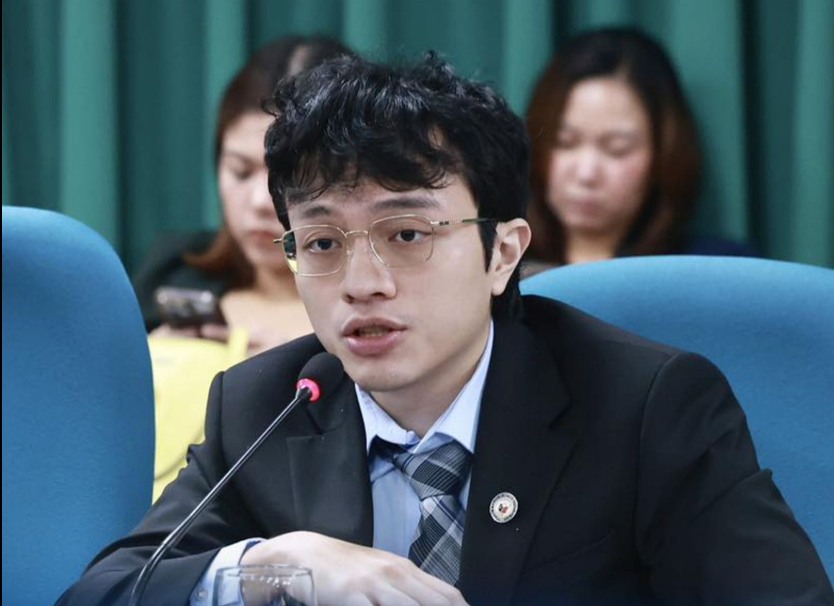When Senate President Chiz Escudero called for a review of Philippine Inland Gaming Operators (PIGOs) earlier this year, it signaled a long-overdue recognition that online gambling has outpaced the country’s existing laws and institutional safeguards. But since that call, little has been said about the review’s progress. This has raised questions about how seriously this growing industry’s social costs are being addressed.
As the 20th Congress opens later this month, the issue deserves more than a quiet study. Escudero is joined in this crusade by Senators Sherwin Gatchalian, Alan Peter Cayetano, Pia Cayetano, and Joel Villanueva- each of whom has placed the passage of anti-online gambling legislation among their top 10 priorities. This renewed alignment presents a critical opportunity for the Senate to act boldly and swiftly.
Similarly, a measure prohibiting the promotion of online gambling and its integration with electronic wallets (e-wallets) has been introduced in the House of Representatives. The proposed legislation, filed as House Bill No. 721 or the Anti-Online Gambling Promotions in E-Wallet Act, is authored by Bukidnon Representatives Keith Flores, Jose Alba, Audrey Zubiri, Laarni Roque, and Arlyn Ayon.
What was once a side alley in the gambling world has become a superhighway: readily accessible, algorithmically marketed, and often dangerously underregulated. Many of these platforms operate seamlessly through digital wallets like GCash, removing traditional age-checking barriers and allowing even minors to engage with online betting under the radar.
Even the Catholic Bishops’ Conference of the Philippines (CBCP) has raised the alarm. In a strongly worded post on Facebook, CBCP President Cardinal Pablo Virgilio David condemned online gambling as a “theater of the absurd,” warning that the nation risks “sacrificing an entire generation on the altar of easy profit.” He decried how smartphones have turned every child’s pocket into a virtual casino—and did not mince words when calling out celebrities who “prostitute themselves for a fee” in service of “conscience-less billionaires.”
Among the celebrity endorsers of online gambling is former Senator Manny Pacquiao, a self-styled moral crusader and born-again Christian, who now serves as the face of BK8, a major online gambling platform. The irony is striking: a national icon once praised for discipline and faith now lends his image to an industry that thrives on vulnerability and illusion.
And he is far from alone. Prominent celebrities like Piolo Pascual, Luis Manzano, Maine Mendoza, Kim Chiu, Maymay Entrata, and Maris Racal have all lent their star power to promote BingoPlus. Ivana Alawi fronts for Bet88, while Vice Ganda headlines GameZone. These endorsements are not one-off deals, as they occupy billboards, dominate social media, and beam through prime-time television.
The power of celebrity branding cannot be underestimated. These figures command massive influence, especially among younger audiences. Their association with online casinos lends legitimacy and aspirational appeal to what is, at its core, a high-risk behavior with real-world consequences: financial instability, addiction, and social distress.
There is a precedent for curbing such endorsements. Prior to the enactment of Republic Act 9211 or the Tobacco Regulation Act of 2003, tobacco companies freely engaged celebrities to endorse cigarettes. The passage of that law set a clear boundary: public health outweighed commercial profit. It is time the same standard applies to online gambling.
Beyond simply restricting access to minors, regulation must also tackle the marketing machinery driving this industry’s growth. Like tobacco, advertising should be off-limits in school zones, public transit hubs, and digital platforms without strict age verification. And yes, celebrity endorsements must be categorically banned.
Senator Gatchalian, in a recent press conference, reaffirmed his push to pass the Online Gambling Regulatory Framework Act. This is a welcome development, but it must carry the weight of moral clarity and not just technical oversight. We need a law that treats online gambling with the same scrutiny we afford other socially harmful industries.
The Philippine Amusement and Gaming Corporation (PAGCOR) has taken visible steps against illegal offshore operators—issuing public advisories, coordinating with law enforcement, and adjusting licensing fees to attract legitimate players. However, its stance on inshore online gambling remains more circumspect. While it continues to license domestic platforms like BingoPlus and GameZone, it has done little to address the aggressive marketing strategies, celebrity promotions, or the ease with which minors can access these platforms.
In a statement dated July 4, PAGCOR reiterated that it is “duty-bound to follow any and all relevant regulations once they are passed by Congress and signed into law,” and affirmed its commitment to intensifying efforts “in the ongoing battle against the proliferation of illegal online gaming activities.” The implication is clear: unless legislation explicitly addresses these gray zones, the industry will continue operating with minimal restraint.




